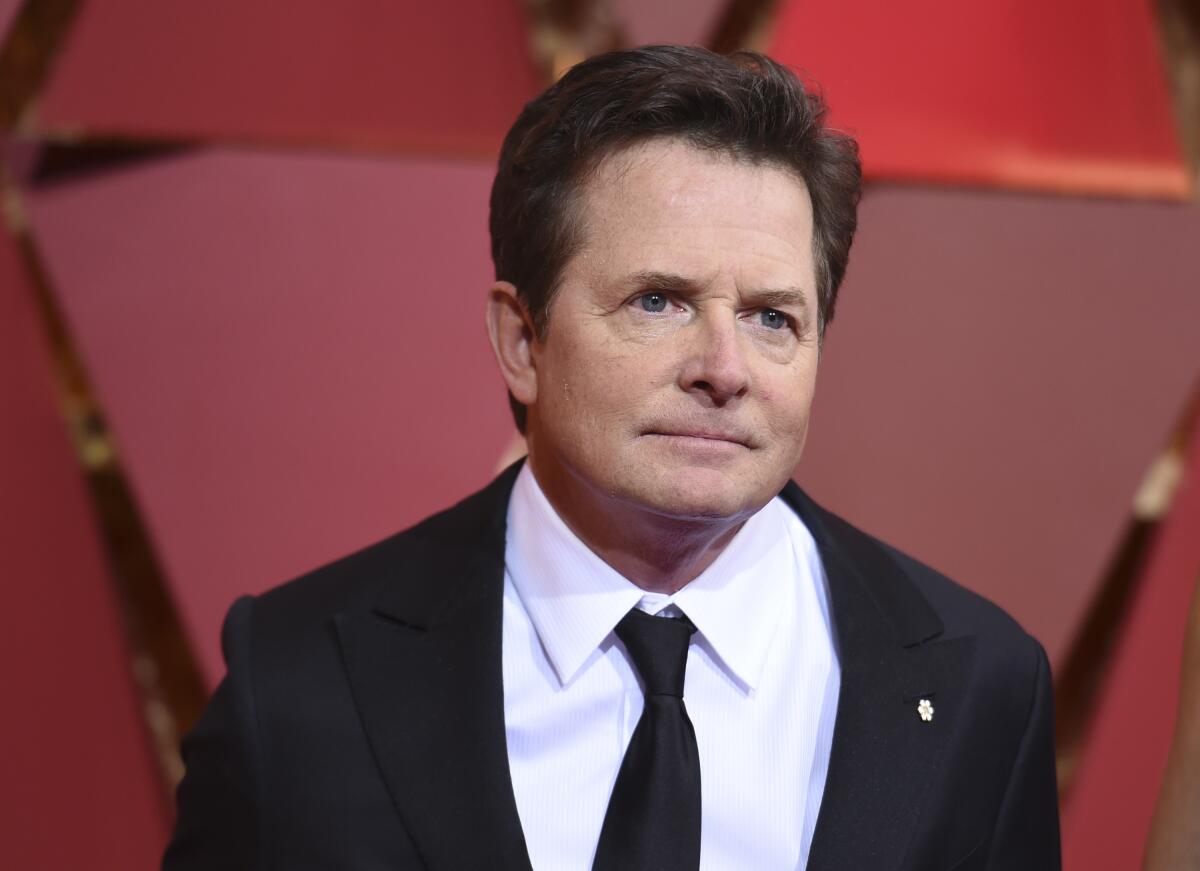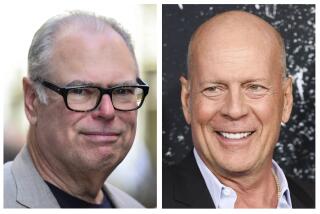Michael J. Fox teases coming out of retirement for a role with ‘his realities’

- Share via
Michael J. Fox might not be done with acting — despite announcing his retirement from the craft four years ago.
The “Back to the Future” actor, who released an Emmy-winning documentary chronicling his battle with Parkinson’s disease last year, says he is open to returning to Hollywood.
“I would do acting if something came up that I could put my realities into it, my challenges, if I could figure it out,” Fox told “Entertainment Tonight” on Thursday.
“If someone offers me a part and I do it and I have a good time, great.”
Fox retired from the film industry in 2020 after discovering he had trouble memorizing dialogue on the sets of the TV series “The Good Fight” and “Designated Survivor.” He said that seeing Leonardo DiCaprio’s character in “Once Upon a Time ... in Hollywood” break down over the same issue was his wake-up call.
“I had this moment where I was looking in the mirror and thought, ‘I cannot remember it anymore. Well, let’s move on.’ It was peaceful,” he told Empire magazine last year.
Fox discovered that he had the degenerative condition that causes involuntary movement and memory loss at just 29, when it seemed he was at the height of his film career.
“I was bigger than bubblegum,” he narrated in the trailer for “Still,” which was released on Apple TV and won four Primetime Emmy Awards. He said he first realized that something was amiss with his health “when I woke up and I noticed my pinkie ... auto-animated.”
The “Bright Lights, Big City” actor kept his diagnosis a secret for years before revealing it publicly in 1998.
He continued acting and founded the Michael J. Fox Foundation, which has become the largest nonprofit Parkinson’s research fundraiser in the world, having raised more than $2 billion in just over 20 years.
More to Read
The biggest entertainment stories
Get our big stories about Hollywood, film, television, music, arts, culture and more right in your inbox as soon as they publish.
You may occasionally receive promotional content from the Los Angeles Times.










